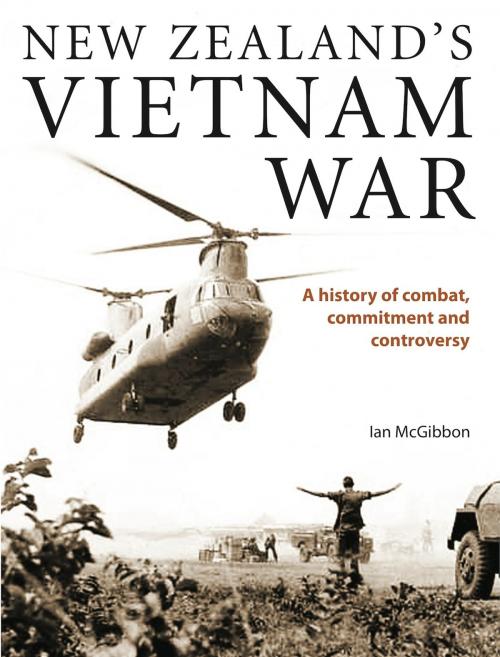New Zealand's Vietnam War
A history of combat, commitment and controversy
Nonfiction, History, Australia & Oceania, Military, Vietnam War, Asian| Author: | Ian McGibbon | ISBN: | 9781877568534 |
| Publisher: | Exisle Publishing | Publication: | September 1, 2010 |
| Imprint: | Exisle Publishing | Language: | English |
| Author: | Ian McGibbon |
| ISBN: | 9781877568534 |
| Publisher: | Exisle Publishing |
| Publication: | September 1, 2010 |
| Imprint: | Exisle Publishing |
| Language: | English |
This landmark publication provides a comprehensive and authoritative account of New Zealands involvement in the Vietnam War, and will remain the standard reference work on the subject for decades. Its publication completes the programme of official war histories that began in 1945.Ian McGibbons primary focus is what New Zealand did in South Vietnam. He traces in detail the operations carried out by New Zealand forces and seeks to illuminate the experience of New Zealand soldiers fighting in a guerrilla war. The command structure, logistic support and operational context of fighting within a primarily Australian framework are all covered. He addresses controversial aspects such as friendly fire incidents, atrocity allegations and veterans grievances, including over Agent Orange. Maori participation in V Force was substantial and its impact is assessed. Although the book is inevitably weighted towards the military, the efforts of civilians in South Vietnam are also covered in depth. The surgical team operated from 1963 until their evacuation from Qui Nhon just days before North Vietnamese columns entered the city. Not forgotten are the efforts of courageous civilians like Sister Mary Laurence and of Red Cross volunteers to alleviate misery among refugees.The book also describes the dramatic end of New Zealands involvement in South Vietnam with the surgical team and the New Zealand Embassy evacuated by RNZAF Bristol Freighters just before the communist victory. Finally, McGibbon surveys the wars troubled aftermath, culminating in the Prime Ministers apology to veterans in 2008.
This landmark publication provides a comprehensive and authoritative account of New Zealands involvement in the Vietnam War, and will remain the standard reference work on the subject for decades. Its publication completes the programme of official war histories that began in 1945.Ian McGibbons primary focus is what New Zealand did in South Vietnam. He traces in detail the operations carried out by New Zealand forces and seeks to illuminate the experience of New Zealand soldiers fighting in a guerrilla war. The command structure, logistic support and operational context of fighting within a primarily Australian framework are all covered. He addresses controversial aspects such as friendly fire incidents, atrocity allegations and veterans grievances, including over Agent Orange. Maori participation in V Force was substantial and its impact is assessed. Although the book is inevitably weighted towards the military, the efforts of civilians in South Vietnam are also covered in depth. The surgical team operated from 1963 until their evacuation from Qui Nhon just days before North Vietnamese columns entered the city. Not forgotten are the efforts of courageous civilians like Sister Mary Laurence and of Red Cross volunteers to alleviate misery among refugees.The book also describes the dramatic end of New Zealands involvement in South Vietnam with the surgical team and the New Zealand Embassy evacuated by RNZAF Bristol Freighters just before the communist victory. Finally, McGibbon surveys the wars troubled aftermath, culminating in the Prime Ministers apology to veterans in 2008.















